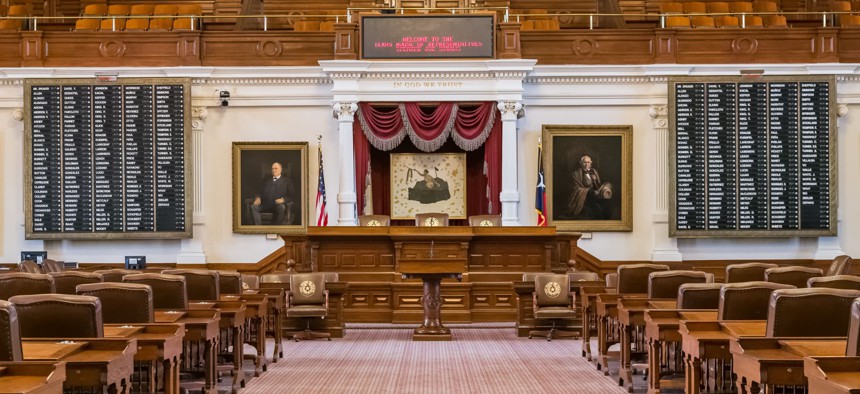As Technology Evolves, Public Disclosure Gets More Complex for State Legislatures

Shutterstock
“The lines are getting more and more blurred as we move forward,” one state technology official said during a panel discussion at the NCSL summit in Chicago.
As compliance with public disclosure laws becomes increasingly complicated in an era of cloud servers, smartphones and messaging apps, a panel of experts Monday offered a window into the sometimes tricky terrain state legislatures navigate when maintaining and releasing records.
The panel took place at the National Conference of State Legislatures 2016 legislative summit in Chicago. Guidelines for how long to keep records, and nuances involving information stored on personal devices and in non-governmental email accounts were among the issues discussed.
“It used to be you just had to figure out: Is it a record because it’s on a piece of paper versus on a computer? And now it’s on different devices and different formats,” said Sharon Crouch Steidel, chief technology officer for the Virginia House of Delegates, who moderated the panel.
“The lines are getting more and more blurred as we move forward,” she added.
Records retention was a key topic touched on Monday.
“The devil is in the details,” Brett Ferguson, an attorney with the Texas Legislative Council, and one of the panelists, said as he discussed the issue.
In Texas, he explained, how long a record is kept depends on its contents and the circumstances surrounding its origins—rather than its format. The state’s Library and Archives Commission approves retention schedules outlining the minimum amount of time various types of records must be preserved before they can be destroyed or deleted.
Something like emails exchanged between legislative staff members making lunch plans would typically be considered “transitory” and can be discarded immediately. But requirements call for other emails, such as those concerning the official business of lawmakers, or correspondence pertaining to legislation, to be kept for multiple years, or indefinitely in some cases.
“You can’t just look at it and say: ‘this is an email,’” Ferguson cautioned. “You really have to look at who’s involved and what the circumstances were.”
The Texas State Library and Archives Commission has a recommended system for people to use when organizing their official email, based on when each message can be deleted.
Policies for records retention vary state-to-state, Ferguson stressed.
In some places, he said, how public records laws apply to digital information could depend on whether it is transmitted or stored using state-owned technology, as opposed to a personal email account or phone. But, in Texas, the laws apply to any electronic communications connected to state business. Ferguson pointed out: “The format is irrelevant.”
Even communications sent over the mobile messaging application Snapchat, or the photo and video-sharing service Instagram, he said, would be subject to public disclosure in Texas.
Similarly, Soren Jacobsen, a senior information technology specialist for the Idaho Legislature, explained that, in his state, if information relates to public business, it’s part of the public record.
“The deliverable really doesn’t matter,” he added.
Ferguson offered some examples of how problems with public records can arise.
A staffer with official emails on, say, a personal Gmail account could delete the account, and the emails with it. Another possible curveball: a person might adjust their email settings to automatically delete messages they download to a smartphone. Or they might back up data related to their work using iTunes storage or a Dropbox account that they later abandon.
Each of these instances raises the possibility that information that should be part of the public record ends up getting lost or destroyed.
For the last two election cycles in Idaho, training about public records has been built into orientation sessions for new lawmakers, Jacobsen said. Virginia offers similar training.
A human factor definitely remains in play when it comes to maintaining public records law compliance, Ferguson noted. “It requires training and active involvement,” he said, “and it would be really difficult to automate the process entirely.”
Bill Lucia is a Reporter for Government Executive’s Route Fifty and is based in Washington, D.C.
NEXT STORY: For sale: 2,719.32669068 government-owned bitcoins






